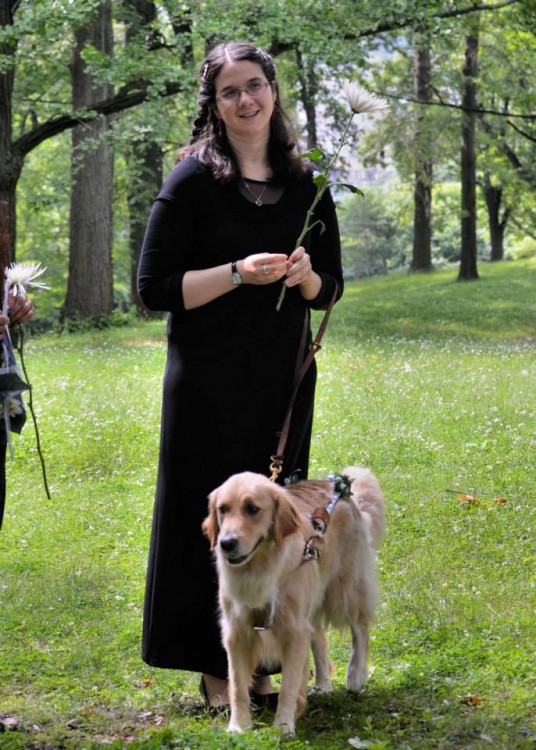Having a visible disability comes with its own sets of challenges. Sometimes people pray over me or give me unsolicited advice. But the most frustrating for me is when they are inspired by me when I have not done anything deserving of admiration. Recently The Mighty highlighted Robyn Lambird, a teen who talked about the need for speaking positively about disabilities. One point she brought up in her video was that by admiring every small accomplishment of people with disabilities, it diminished the worth of any significant achievements.
One moment that speaks to this and illustrates Lambird’s point occured my freshman year of college. I walked into an Applebee’s restaurant, guided by my Seeing Eye dog, a black lab named Cloud, with my mother. We sat down and did what everyone does at restaurants — ordered food and chatted. Someone walked up to our small corner table, and before I could inquire about getting more iced tea, the person blurted out, “You are so inspiring. You know we all take so much for granted, and here you are. Thank you for your bravery.”
Internally, I was furious but I could not find the right words. “Thank you,” I said. The words fell flatly on the cheap wooden chain restaurant table.
“She meant well, you can’t get mad,” my mother would console me later.

This was not comforting, because I was angry. All the woman knew about me was that I was able to walk into a restaurant, order food and socialize, and I exceeded her expectations of me. She had no idea I was in college, or that I had made the dean’s list my first semester. I woke up and left my house, and that was enough. I had fulfilled my life requirement.
In December 2015, I graduated with my Bachelor of Fine Arts, six years after the incident with the woman at Applebee’s. Six years later I’d done a lot more than just attend college. I walked across the stage with my new Seeing Eye dog, a golden retriever named Solstice, shook the president’s hand along with a few deans, and accepted the diploma case. My dog guided me effortlessly back to my seat. I was hyper-focused on that stage, making sure to follow my dog perfectly, to see where the president stood, to shake her hand and the next hand, and to take the case. I had to find the stairs, walk down, get oriented and walk back to where I needed to go. My friend told me later that she cheered for me, and a few other people did as well.
As all the graduates filed out of the Athletic and Fitness Center where the December graduations are held, I followed the marshall, who also happened to be my boss at the office for students with disabilities. From the crowd, someone I didn’t know shouted, “You go girl! You had to work twice as hard and you deserve it!”
We walked out, I hugged my boss who had helped me through college by scanning, Brailling, reading, and doing anything else I needed. I hugged professors. I cried a little. We all walked to the reception hall and stopped to stand by a table for four to wait for my parents and my friend to meet me, and I thought about what that woman had yelled — and I wasn’t angry.
Around my neck was a deep red stole from Sigma Tau Delta, an English honor society, and in my hands was a diploma. By receiving a diploma, walking across a stage solo, and being noticeably marked as an honor society member, I had exceeded that woman’s expectations. In this one situation, that was OK. I earned the praise. I did have to work harder, having lost my vision for a second time partway through my college career. This time, it was OK to be inspirational.
The next week on the bus with Solstice, a man I didn’t know sat next to me and brushed my skirt aside to pet her head, which was between my knees. “You and your dog are amazing,” he said, ignoring not only my personal space but my recent very real accomplishment as well. “Positive thinking” about disability means believing that people with disabilities can do more than leave their house: they can be parents, coworkers, friends and meaningful and productive members of the global society.
So instead of telling every person you see how inspirational they are, save it until you meet someone who has actually done something you personally admire. When you find that person, tell them you admire them, because then it will mean a lot to them, just like it does for anyone else.
The Mighty is asking the following: Tell us one thing your loved ones might not know about your experience with disability, disease or mental illness. What would you say to teach them? If you’d like to participate, please send a blog post to community@themighty.com. Please include a photo for the piece, a photo of yourself and 1-2 sentence bio. Check out our Submit a Story page for more about our submission guidelines.
